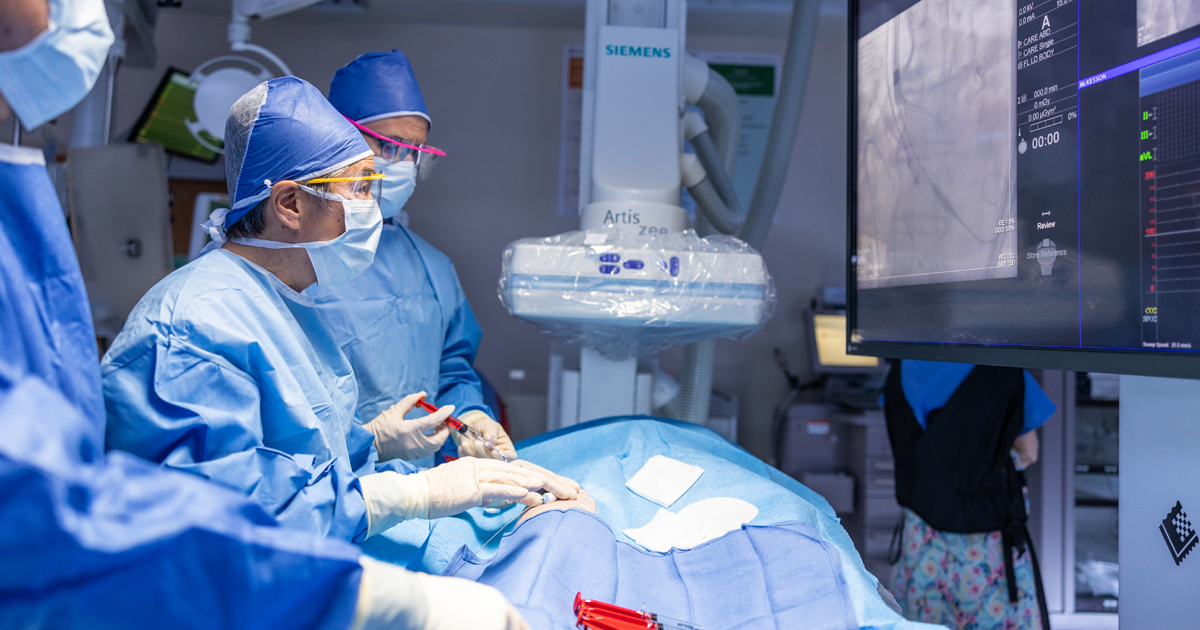Cardiology, the branch of medicine focused on the heart and blood vessels, has witnessed remarkable advancements over the past few decades. Thanks to cutting-edge treatments and breakthrough technologies, the diagnosis, treatment, and management of heart diseases have drastically improved, leading to better patient outcomes and quality of life. In this article, we’ll explore some of the most innovative developments shaping the future of cardiology.
The Rise of Minimally Invasive Procedures
One of the most significant innovations in cardiology is the shift from traditional open-heart surgeries to minimally invasive procedures. Techniques such as angioplasty and stenting allow cardiologists to treat blocked arteries without large incisions. These procedures involve threading a tiny balloon or stent through blood vessels to open narrowed arteries, restoring blood flow efficiently.
Minimally invasive treatments offer numerous benefits, including reduced recovery times, less pain, and lower risks of complications. This revolution has made heart care more accessible and less intimidating for many patients.
Artificial Intelligence (AI) and Machine Learning in Cardiology
Artificial intelligence is transforming cardiology by enhancing diagnostic accuracy and personalizing treatment plans. AI algorithms analyze vast amounts of patient data—from imaging results to genetic profiles—to identify subtle patterns that may be missed by the human eye.
For example, AI-powered tools can predict the risk of heart attacks or detect irregular heart rhythms early on. This enables doctors to intervene sooner, improving survival rates. Machine learning also supports remote monitoring and decision-making, optimizing how cardiologists manage chronic heart conditions.
Wearable Heart Monitors and Remote Patient Monitoring
Wearable devices such as smartwatches and chest patches have become invaluable tools for continuous heart monitoring. These gadgets track vital signs like heart rate, rhythm, and blood oxygen levels in real time.
Remote patient monitoring allows doctors to keep tabs on patients outside hospital settings, leading to timely interventions and fewer emergency visits. Patients with conditions like atrial fibrillation or heart failure benefit greatly, as these devices can alert them and their doctors to potential issues before they become serious.
Advances in Heart Surgery and Transplantation
Innovations in surgical techniques and technology have made heart surgeries safer and more effective. Robotic-assisted surgery, for example, offers precision and control beyond human capabilities, allowing surgeons to perform complex procedures through tiny incisions.
In heart transplantation, new methods such as ex vivo perfusion—which keeps donor hearts alive outside the body longer—are expanding the donor pool and improving transplant success rates. Additionally, artificial hearts and ventricular assist devices (VADs) provide life-saving options for patients awaiting transplants.
Personalized Medicine in Cardiology
Personalized medicine is an exciting frontier where treatments are tailored specifically to a patient’s genetic makeup, lifestyle, and unique health profile. By understanding individual differences, cardiologists can prescribe therapies that are more effective and have fewer side effects.
Genetic testing can identify inherited heart conditions, while pharmacogenomics guides medication choices based on how a patient’s body processes drugs. This personalized approach enhances treatment outcomes and empowers patients to take active roles in managing their heart health.
Future Trends: Regenerative Medicine and Stem Cell Therapy
Regenerative medicine offers hope for repairing damaged heart tissue and reversing heart failure. Stem cell therapy, which uses specialized cells to regenerate healthy heart muscle, is under intense research and clinical trials.
While still emerging, these therapies could revolutionize cardiology by restoring heart function without the need for transplants or mechanical devices. Researchers are also exploring gene editing technologies like CRISPR to correct genetic defects causing heart diseases.
Improving Patient Outcomes Through Innovation
The combination of these advancements is transforming cardiology into a more precise, less invasive, and highly patient-centered field. Improved diagnostics, personalized treatments, and remote care options contribute to earlier interventions and better long-term health.
Patients today can expect shorter hospital stays, fewer complications, and enhanced quality of life thanks to these innovations.
Conclusion: Embracing the Future of Heart Care
Innovation in cardiology is not just about new gadgets or techniques—it’s about improving lives. Cutting-edge treatments and technologies are helping millions worldwide live longer, healthier lives by preventing and managing heart diseases more effectively than ever before.
As research continues to push boundaries, the future of cardiology holds even greater promise. Staying informed about these innovations empowers patients and caregivers to make better decisions and take control of heart health.

